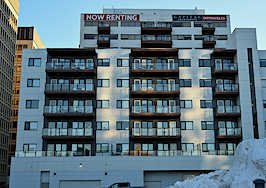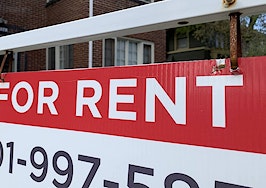Inman Connect New York delivers the perfect blend of outside-the-box thinkers, cutting-edge leaders, and hard-working, successful agents. Join us Jan. 24-26 for crucial content, education, and networking opportunities to help you thrive in today’s changing market. Register here.
Coordination between some of the nation’s biggest apartment owners that may have helped drive up rents across the nation amounted to a “cartel” operating monopolistic control over the cost of rental housing, a group of renters alleged in a class action lawsuit filed last week.
The suit stems from a report that alleged apartment data company RealPage and its clients worked together to achieve rent prices that outperformed the rest of the market by 3 percent to 7 percent.
It also follows rent rising at rates well above historical averages to reach all-time highs. The agreements between property managers and RealPage, as well as RealPage’s YieldStar rent pricing software helped lead the way, the suit alleges.
“Beginning in approximately 2016, and potentially earlier, Lessors replaced their independent pricing and supply decisions with collusion,” the lawsuit, filed on Tuesday, alleges. “The participating Lessors’ cartel replicates the market outcomes one would observe if they were a monopolist of residential leases, which is the goal of any cartel.”
“In simplest terms, this meant the market was functioning competitively,” according to the suit which was filed in Southern California.
The lawsuit alleges the parties violated section one of the Sherman Act, an antitrust law that seeks to prevent conspiracies in commerce. The complainants seek trebled damages plus injunctive and other relief.
In addition to RealPage, other defendants include Greystar Real Estate Partners, Lincoln Property Co., FPI Management, Mid-America Apartment Communities, Avenue5 Residential, Equity Residential, Essex Property Trust, Thrive Communities Management and Security Properties Inc.
The complaint alleges the property managers used RealPage’s recommended pricing up to 90 percent of the time without making any changes.
It says the agreements in place helped apartment owners avoid oversupply in the market that might drive down prices. The goal of working with RealPage, the suit alleges, was to drive up the cost of rent and minimize vacancies.
“RealPage’s and participating Lessors’ coordinated efforts have been effective at driving anticompetitive outcomes: higher prices and lower occupancy (output),” the lawsuit alleges. “RealPage brags that participating Lessors experience ‘[r]ental rate improvements, year over year, between 5% and 12% in every market.’”
In response to the suit, RealPage said the original report “contains inaccuracies and is misleading.”
“Rent prices are determined by various factors including supply and demand as well as each property owner’s unique circumstances,” the company said in a statement. “There is a housing supply shortage and that alone drives prices higher. Occupancy has been at an all-time high.”
The company said its software was built to be legally compliant.
“RealPage is aware of the lawsuit,” the statement continued. “We strongly deny the allegations and will vigorously defend against the lawsuit. Beyond that, we do not comment on pending litigation.”
Get Inman’s Property Portfolio Newsletter delivered right to your inbox. A weekly roundup of news that real estate investors need to stay on top, delivered every Tuesday. Click here to subscribe.













